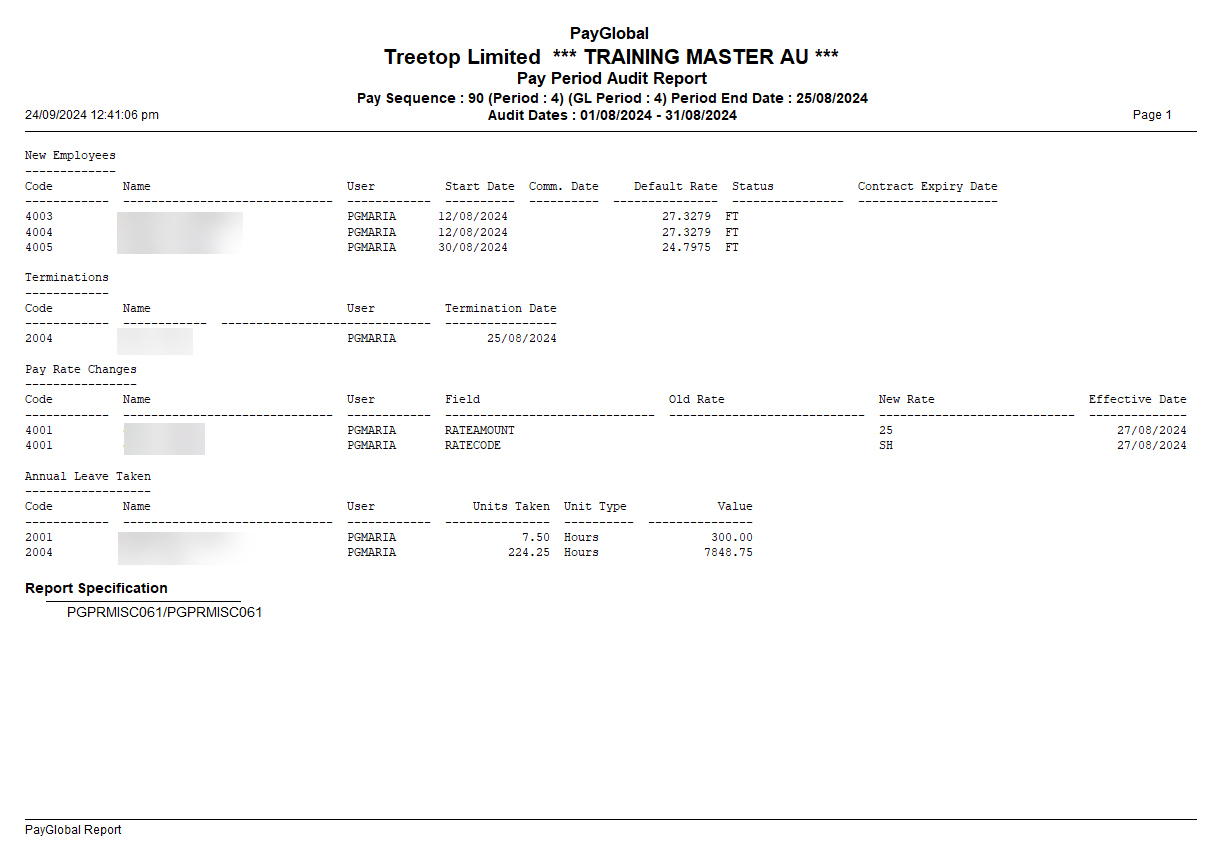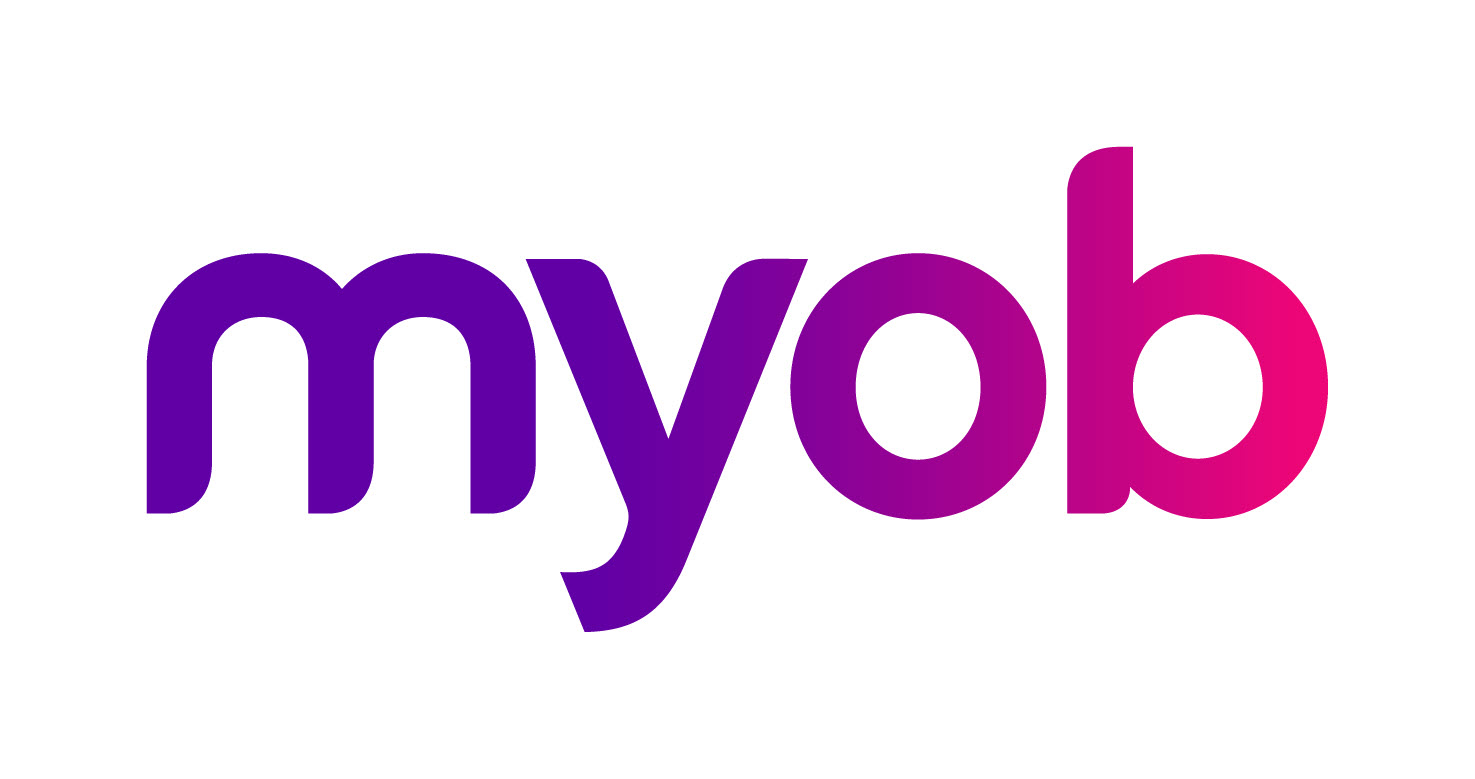Auditing Options
Did you know that there are a number of options you can use to Audit information in PayGlobal?
They include the Audit Analysis for a field, record or the whole database and several audit reports.
In the following video, we look at the various options you can use to audit your PayGlobal database, and the information held within.
https://www.youtube.com/watch?v=N5XxHGvA6xYHow to run the Audit Analysis on a field:
You would do this to check if any manual changes had been made to a field.
Open the record you want to audit, then go to the field you want to run an Audit Analysis on.
Edit the record, click into the field and press F6
The filter will always show as “Today’s Transactions”.

If you want to see all changes, change the filter to All Transactions then press GO.

A record of changes made to the field you audited will be displayed.

How to run the Audit Analysis on a record:
This would be used to audit an entire record to see all changes made to the record.
Right click on the record you want to audit in the grid view and select Audit Analysis from the menu.
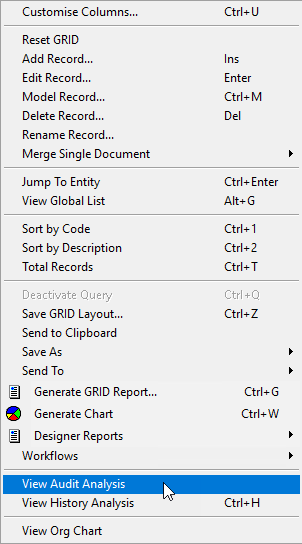
The filter will always show as “Today’s Transactions”. If you want to see all changes, change the filter to All Transactions then press GO
A record of changes made to the record you audited will be displayed.
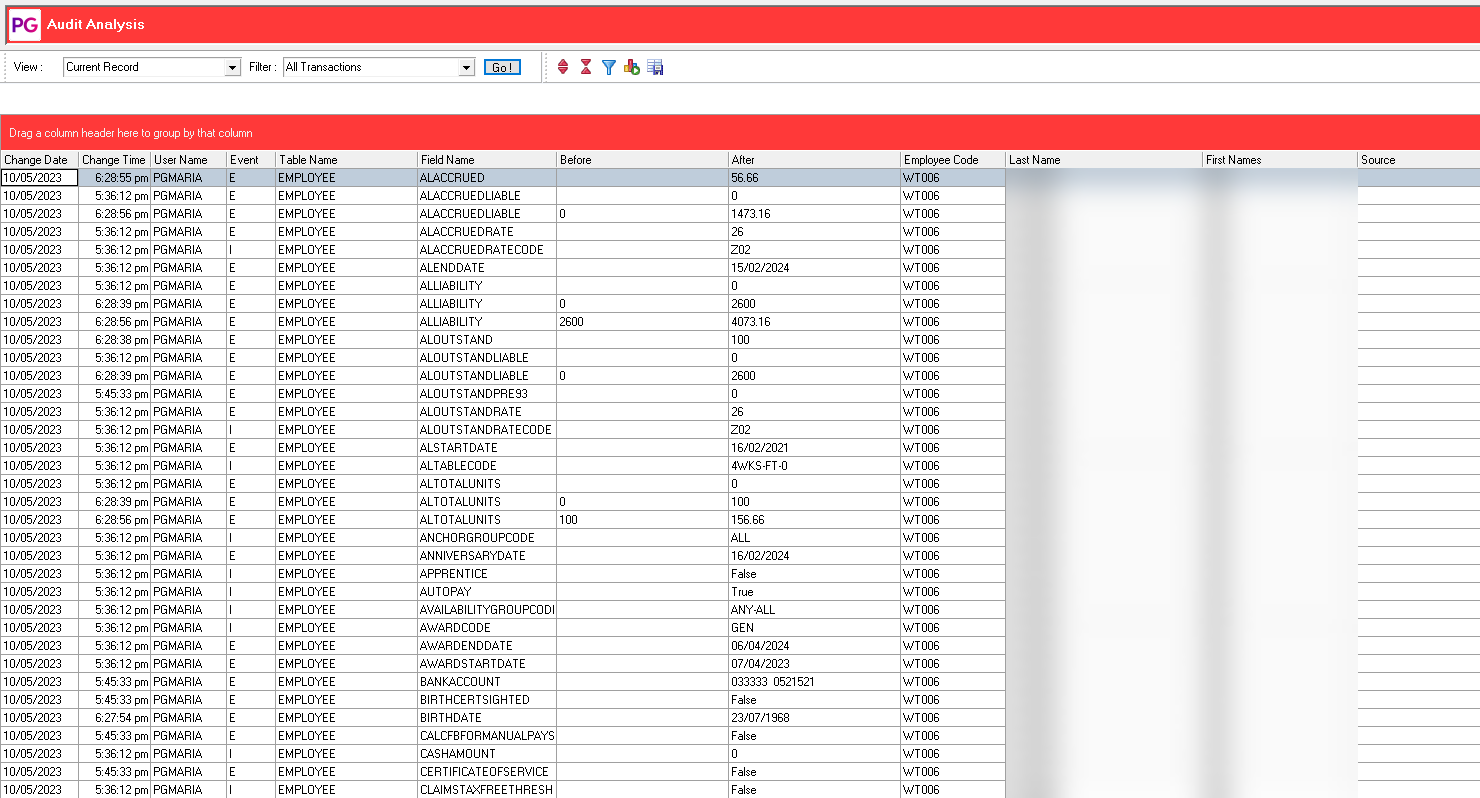
How to run the Audit Analysis on the whole database:
This will run an Audit on the entire database to see what records or fields have been changed.
For this option your will need access to view the Audit Analysis under Administration / Security.
Go to Administration / Security then double click on Audit Analysis
This will automatically open to “Todays transactions”.
You can then change the filter one of the options which include “This week to date”, This Month to date” or “between Specified date range”.
Once you’ve changed your filter, press GO.
Event column ledger:
I = Insert
E = Edit
D = Delete
How to run the Audit Analysis Report:
There are a few Audit Reports in PayGlobal, located in the Audit Reports report group. In this example we will check when the State Field was updated on all employees using the PGPRAUDT001 Audit Report 001.
Go to Reports and click on Report Groups
Double click on the PGPRAUDT Audit Reports report group
Right click on the Audit Report to bring up the menu and select “Edit Report Settings”.
Apply the filters as needed.
Go to the Query Tab and add clauses to display the detail you need.
Adding clauses
Right click on the screen and select Edit Clause
Select “Auditlog.Table changed” and press OK
Select “Is equal to” and press OK
Type in the table name in CAPITALS. Eg: EMPLOYEE then press OK
Right click on the screen and select Insert Clause
Click on the “And” and select ‘Edit Clause’
Select ‘and’ or ‘or’ and press ok. This example we will select ‘and’.
Select Auditlog.Field Changed and press OK.
Select ‘is equal to’ and press OK
Type in ‘STATE’ in capitals and press OK
Right click on the screen and select Insert Clause
Click on the “And” and select ‘Edit Clause’
Select ‘and’ or ‘or’ and press ok. This example we will select ‘and’.
Select Auditlog.Date of change and press OK.
Select ‘is between’ and press OK
Type in Start and End Dates then press OK
Go to the Sorting tab.
In the top field, select ‘AuditLog.EmployeeCode’
Click on “Run” to run the report.
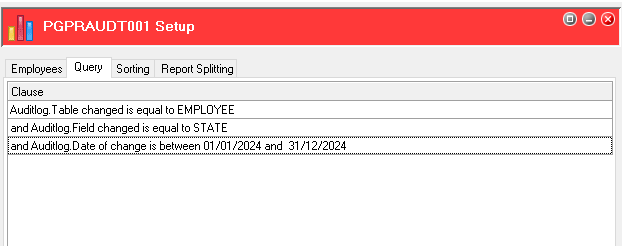
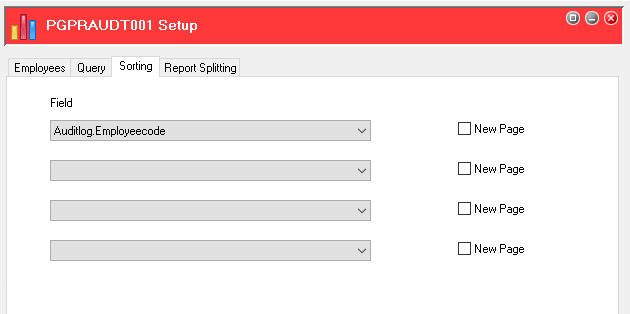
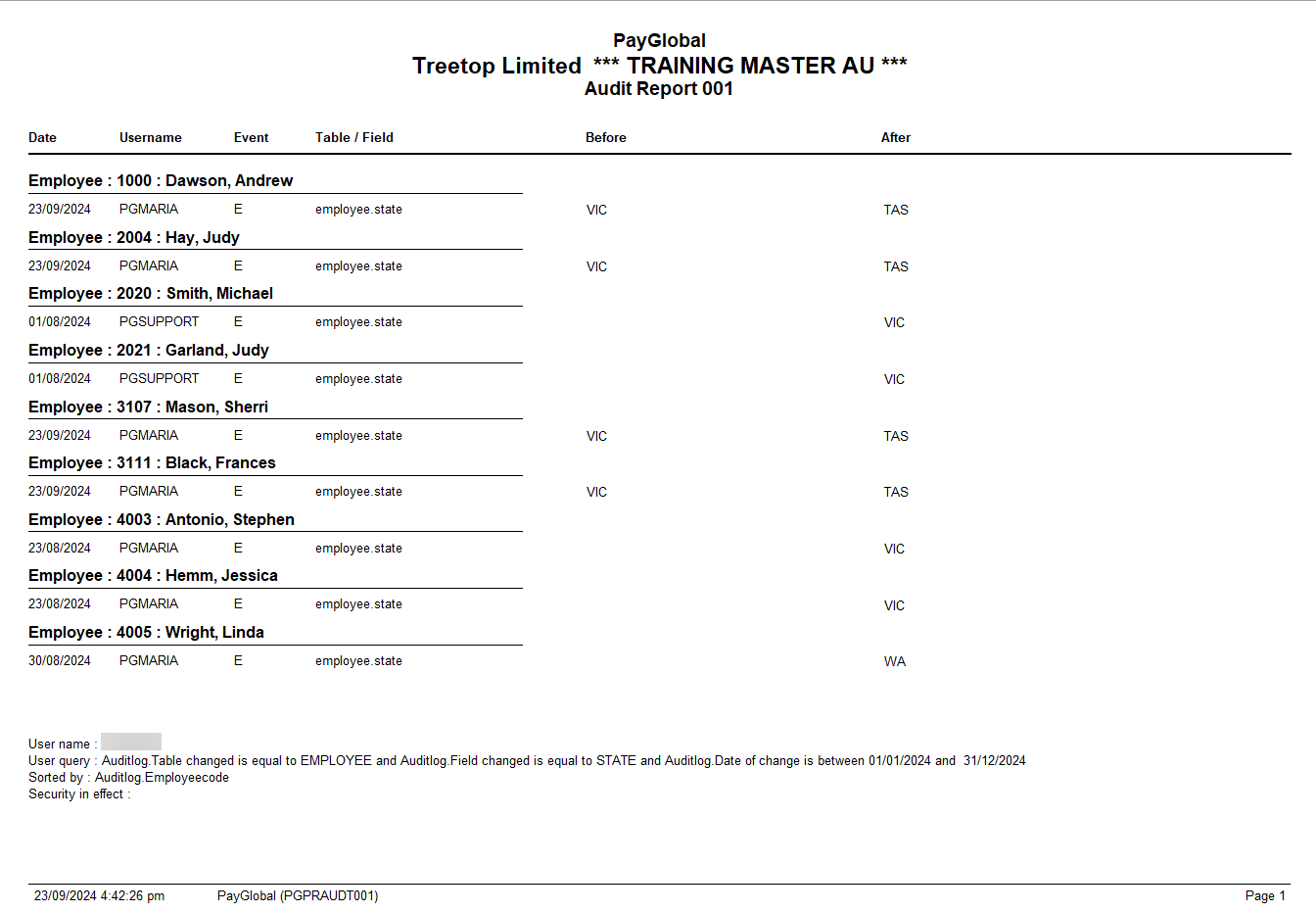
How to run the Pay Period Audit Report:
In the PGPRMISC Miscellaneous Reports report group, there is a Pay Period Audit Report. This report can be used after a pay is closed to check certain audit options like leave processed, new employees added, rate changes etc.
Go to Reports and click on Report Groups
Double click on the PGPRMISC Miscellaneous Reports report group.
Right click on the Pay Period Audit Report to bring up the menu and select “Edit Report Settings”.
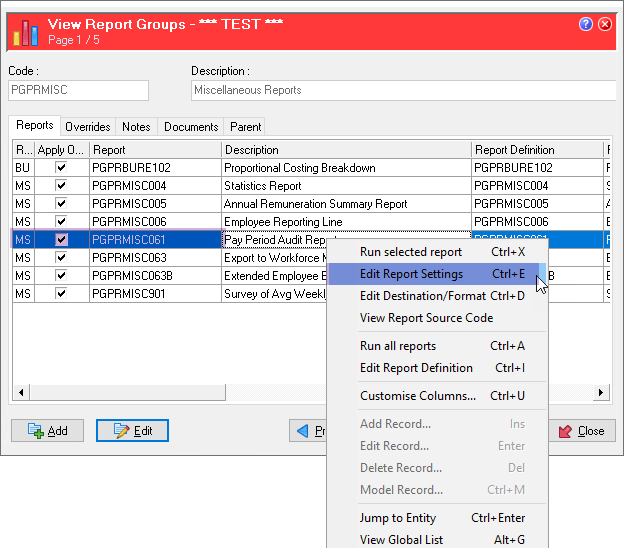
Select the pay sequences from the list you want to Audit. To do this, click in the check box to the left of the sequence. In this example we will select sequence 90. Then press ok.
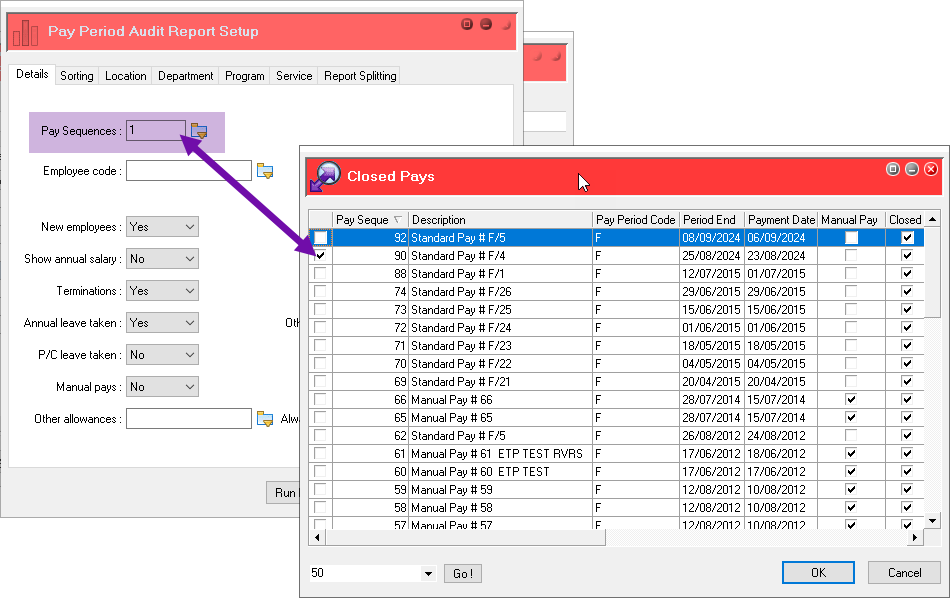
Complete the Date from and Date to fields on the right-hand side of the screen. These should match the pay sequence(s) you have selected.
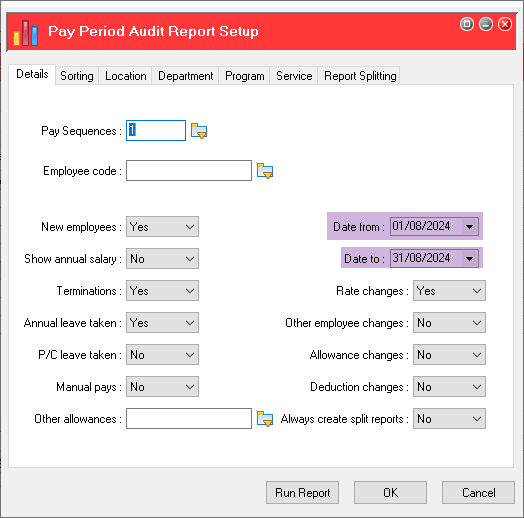
Next select the options you would like included by changing them to YES. In this example we will include new employees, Terminations, Rate changes and other employee changes.
Click on Run report.
